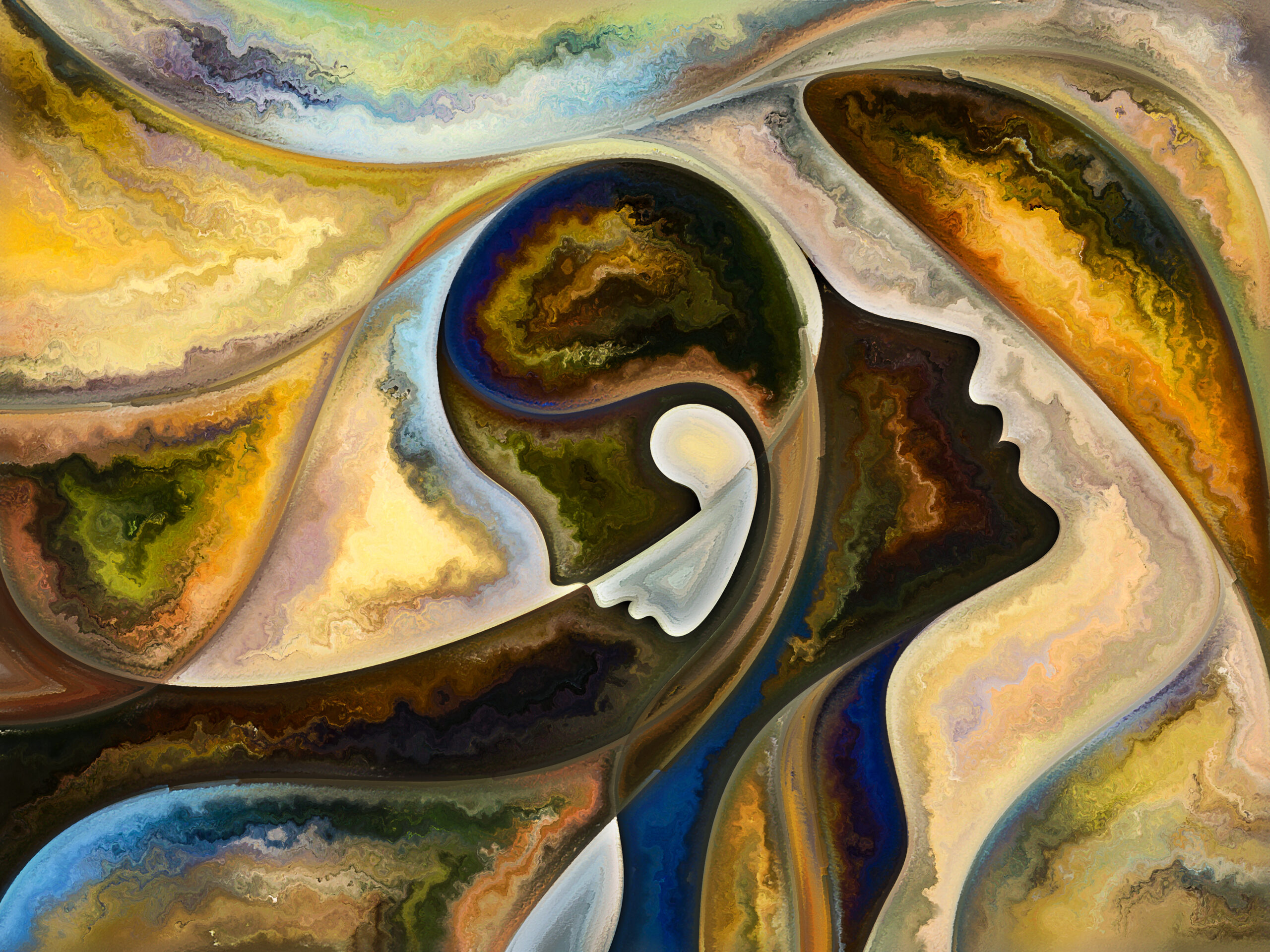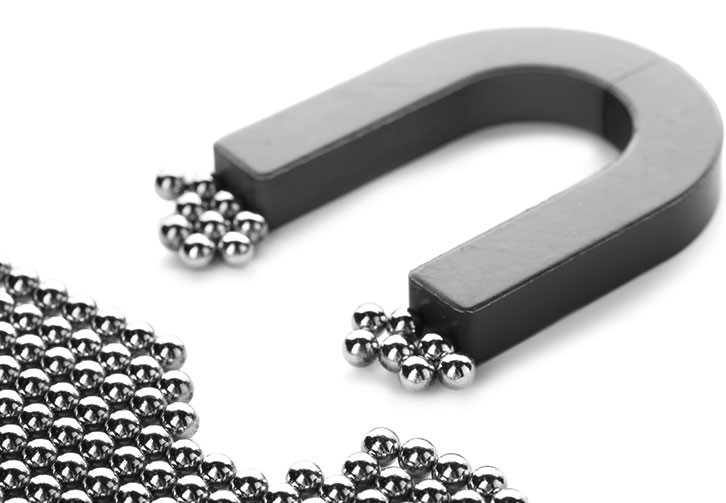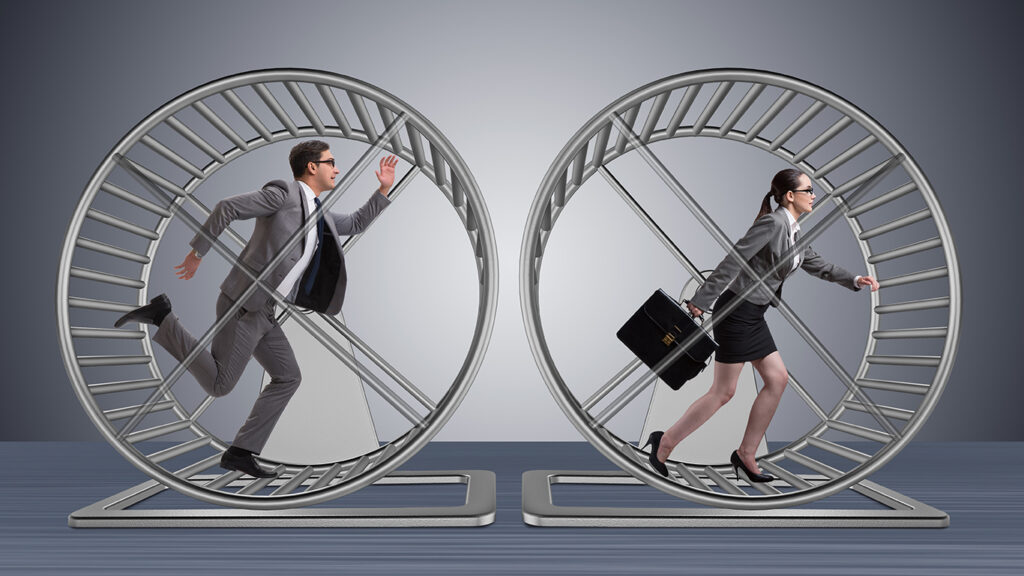Article Summary:
Ego is a problem for all of us. It comes with many related problems, including selfishness, arrogance, self-importance, and mental suffering. How to escape the trap of our ego.
+++
There’s a long list of people who have famously been captured by their ego, from celebrities and CEOs to politicians and professional athletes. It’s a well known problem, and one that keeps causing mayhem.
“Pride goeth before destruction, and a haughty spirit before a fall.”
-Proverbs 16:18
But this is a problem for all of us, not just the rich and famous. There’s a long list of related problems that come with an unhealthy attachment to our ego: selfishness, arrogance, condescension, self-importance, superiority, hyper-sensitivity, hyper-competitiveness, and corruption.
With ego traps, we see perfectionists, overachievers, and underachievers (our ego prefers us on the sidelines so we don’t run the risk of coming up short), as well as curmudgeons (who express disappointment or disgust every waking minute). It’s a parade of dysfunctions.
“Ego clouds and disrupts everything.”
-Jocko Willink in Extreme Ownership
How to Know When We’ve Been Captured by Ego
Our ego-driven thoughts are there to protect us and help us perform for others in a way that buttresses our chosen identity.
When we’ve been captured by our ego, we tend to bask in praise and let it go to our heads. We resist or ignore negative feedback or things we should consider improving. Our defense mechanisms kick in, placing us in a protective shell in which we’re not open to reality. We get caught up in defending an image of ourselves—an image of how we want to be seen to be.
When we’ve been captured by our ego, we tend to be or feel:
- selfish
- judgmental
- critical of others
- arrogant about our abilities and contributions
- bad at listening
- needy for attention, recognition, or praise
- agitated
- unwilling to admit our mistakes
- resentful of things that happened in the past
- worried about what may happen in the future
These feelings are all signs that our ego is doing a number on us.
“When everybody loves you, you can never be lonely….
when everybody loves me, I’m gonna be just about as happy as I can be.”
-The Counting Crows in their song, “Mr. Jones”
The Problem with Our Ego
Ego is one of the worst traps in our lives. It affects everything when it’s in charge of our thinking, from our happiness and quality of life to our relationships, work, and leadership. And it affects us all. It’s one of the great challenges of being human.
“There are two kinds of egotists: Those who admit it, and the rest of us.”
-Laurence J. Peter
At its worst, our ego does many things. It:
- traps us in obsessive thought loops in which we ruminate on negative thoughts and feelings
- leads to an unhealthy preoccupation with ourselves at the expense of our family, organization, community, or society
- places us in a state of fear, in which we’re operating out of the more primitive parts of our brain and nervous system
- hands control over our happiness and wellbeing to others and to circumstances beyond our control
- hides our weaknesses and shortcomings, leading us to inaccurate self-assessments
- makes us feel defensive when we receive negative feedback, in some cases causing us to “shoot the messenger,” thereby detracting from our ability to learn and improve
- harms our relationships and leads to disconnection from others as we get so absorbed in our own career or image
- prevents us from showing the vulnerability that leads to deeper human connection
- inhibits our compassion
- leads to more conflict (with each person’s ego needs escalating demands and resentments)
- reduces trust in our family and teams
- gets us stuck in harmful patterns of emotional reactivity to people and situations
- causes us to focus excessively on material things and image or success
- keeps us trapped in the past as we continue to litigate old sleights and harms
- makes us feel inferior to others
- makes us feel resentful when the idealized state of the world that our ego keeps unrealistically expecting never appears
- pushes us into a “fixed mindset” (in which we believe our capabilities are set in stone), making us want to avoid challenges and risks
- drains our energy and robs us of peace when things change (as they always do)
- traps us in a logical fallacy of conditional happiness: “When I get or achieve X, then I’ll be happy” (see my article, “The Surprising Relationship between Success and Happiness”)
- degrades our happiness and wellbeing
- makes us feel perpetually unsatisfied, as it inevitably defaults to wanting and needing more attention and praise no matter how good things are in our lives
- drives us to workaholism and all its attendant costs, including health and relationship problems
- becomes a lifelong addiction in which go through our days just trying to protect and satisfy our fragile and insatiable ego
- keeps us from connecting with God and living with grace from our heart and soul
Our ego craves attention. It desperately looks for situations in which it can receive recognition and praise or in which it can create conflict so it can feel agitated or superior.
“Most people are in love with their particular life drama. Their story is their identity. The ego runs their life. They have their whole sense of self invested in it.”
-Eckhart Tolle, The Power of Now
Our ego thrives on superficial comparisons in which we look good at the expense of others. It clings to an idealized image of reality and self so much so that, when change occurs, as it always does, the ego barrages us with negative thoughts and feelings, making us anxious and unhappy.
Our ego tells us lies about ourselves and others and, since these mischievous thoughts come from our own minds, we tend to take them as truth.
We may have a sense of this in the abstract, but there’s a real challenge at work in our daily experience: we’re often not aware when we’ve been hijacked by our ego. The master illusion is that our ego is ourself. We may get glimpses of the illusion when we invoke our deeper consciousness and observe the thought stream of our ego in action as a watcher of our own thoughts. (The question arises about who’s doing that watching? The answer, it follows, is our true self.)
This ongoing lack of awareness means that the ego has a firm grip on our psyche nearly all the time, and it explains why it’s so rare for us to escape that grip. Even as we consider whether our ego is a problem, our ego secretly kicks into denial mode and tells us that, while it may be a problem for others, for us it’s not a big deal.
Addressing our ego is also tricky because of the cognitive dissonance that comes from knowing that having confidence is good for us. We want to avoid being a wallflower and getting stepped on, but humility doesn’t mean insecurity, just as confidence doesn’t mean arrogance.
How Ego Degrades Our Leadership
Ego is one of the great killers of effective leadership.
“The ego is seductive, the kiss of death to true leadership…. For too many leaders, their ego is their worst enemy.”
-Bob and Gregg Vanourek, “Your Ego Is Not Your Amigo”
Our ego takes us away from a focus on our team and our purpose, instead swapping in a focus on how we appear to others. It gets us so focused on managing our image that we’re not accomplishing nearly as much as we could if we just focused on getting the job done.
People can sense it when we’re in it only for ourselves and not a loyal member of the team committed to the shared purpose.
They can also sense it when we’re full of ourselves and breathing our own vapors, assigning ourselves all the credit and neglecting all the contributions of others through the organization. They can see it when we’re unwilling to admit it when we’re wrong, causing us to lose our credibility, one of the most valuable assets for any leader.
“Arrogant leadership is toxic to an organization. It looks like strength but is a debilitating weakness.”
-Ira Chaleff
When we’re hijacked by our ego, we unconsciously hire people who are like us to please our delicate ego, or people who are agreeable and will let our ego get away with its self-absorbed shenanigans. This leads to a weaker team without the diversity of thought, skills, and experience to make breakthroughs and without the will and wisdom to speak truth to power.
Dr. George Watts and Laurie Blazek also point out that it leads to teams that are immature, hyper-competitive, dishonest, political, and dysfunctional. They note five ego traps of leaders, depending on a person’s foundational personality traits:
- The need to be superior, based on a fear of not receiving the status we feel entitled to
- The need to be admired, based on a fear of not receiving the recognition we feel we deserve
- The need to be liked, based on a fear of not being included as much as we want
- The need to be correct, based on a fear of being judged for making a mistake and being viewed as less than perfect
- The need to win, based on a fear of not succeeding or coming out ahead
“Unchecked egos are the most destructive force in business.” -Bo Peabody, entrepreneur and venture capitalist
Ego also threatens to ruin or degrade our experience with big challenges and transitions such as a job change, layoff, empty nest, or retirement, when we’re too attached to our role or position. (See my related article, “Is Your Identity Wrapped Up Too Much in Your Work?”)
“Avoid having your ego so close to your position that when your position falls, your ego goes with it.”
-Colin Powell
How to Get Beyond Ego
Clearly, there are big downsides to having our thoughts captured by our ego. So how do we escape this trap? It turns out that there are many things we can do to get beyond our ego, from simple practices to mindset changes. We can:
- recognize that the ego is a false and misleading identity that causes us suffering because we grow overly attached to it
- develop our self-awareness so that we can notice more often when our ego is hijacking our thoughts and see ourselves and our behavior with greater accuracy and clarity
- develop the courage to be imperfect and vulnerable, embracing the “audacity of authenticity” and replacing perfectionism with healthy striving, as Brené Brown recommends
- stop comparing ourselves to others and focus on contributing to others instead
- stop thinking about ourselves so much, since it’s a recipe for unhappiness, and start thinking more about other people, a cause, or God
- give credit to others and learn to enjoy recognizing their efforts and contributions
- submit to a committed relationship with our spouse, family, community, and/or faith, recognizing the emptiness of focusing on individual material success
- recall that success, wealth, and fame are fickle, that they can change in a heartbeat, and they’re not the point of life or the source of our lasting happiness and fulfillment
- keep learning new things and exposing ourselves to people and experiences outside our zone of expertise
- get deeply immersed in something (e.g., a challenge or sport or performance) and focus on developing mastery to get out of our own head
- solicit feedback and get good at receiving it openly, without resistance or rationalizations
- develop a keen focus on the work itself and the process of doing it—perhaps even leading to a sense of flow—instead of a focus on the potential results and how we may look or feel if we achieve them
- become a servant of a higher purpose that contributes to the lives of others instead of focusing on advancing our own interests or agenda
- join a small group and share openly with each other, developing trust and camaraderie so group members can call each other out when egos get inflated
- stop complaining, since it only fuels the ego with negativity and pulls us out of the present moment and into resentments about the past*
- think about what we’re grateful for
- engage in what researchers call “self-distancing,” in which we view ourselves from the perspective of an outsider or imagining that we’re observing ourselves from a distance (researchers have found that people who do this recover more quickly from negative feelings and reduce their anxiety about future concerns)
- stop identifying with things and ideas, instead allowing ourselves to remain free and present in the moment
- find sanctuary—a place or practice of peace, quiet, and tranquility that restores our heart and soul (e.g., in nature or a house of worship)
- contemplate the vastness of the universe, putting our small egos in perspective
- realize that our mental suffering will continue as long as we’re captive to our ego
Conclusion
Our ego can be a mega-trap in our lives, secretly running a mental script that doesn’t serve us and that takes us away from a life we’d want to live. It causes pain, anxiety, and anguish, over and over again on a nefarious loop.
When we get beyond our ego, it can have profound effects on our experience of life. We can be and feel calm, accepting, forgiving, selfless, peaceful, trusting, serene, still, and complete.
Reflection Questions
- Is your mental script captured by ego most of the time?
- How is it impacting the quality of your life?
- What will you do, starting today, to get out of this trap?
Related Articles
- “The Mental Prisons We Build for Ourselves”
- “The Powerful Pull of the Prestige Magnet”
- “The Comparison Trap”
- “Breaking the ‘Trance of Unworthiness’”
- “The Perfectionism Trap”
- “The Perils of Climbing Mode in Our Career”
- “Beware the Disease of More”
- “The Trap of Dissatisfaction”
- “Are You Living a Divided Life?”
- “Feeling Behind?”
- “Is Your Identity Wrapped Up Too Much in Your Work?”
- “Golden Handcuffs: Stuck in a Job You Don’t Like?”
- “Why Self-Awareness Is So Important–And How to Develop It“
- “The Power of Relationships in Our Lives“
Tools for You
- Traps Test (Common Traps of Living) to help you identify what’s getting in the way of your happiness and quality of life
- Quality of Life Assessment so you can discover your strongest areas and the areas that need work, then act accordingly.
- Personal Values Exercise to help you clarify what’s most important to you
Postscript: Quotations on Ego
- “Wherever you are, whatever you’re doing, your worst enemy already lives inside you: your ego.” -Ryan Holiday, Ego Is the Enemy
- “There is an unhealthy desire for prestige and money that is ruining people’s lives. The desire for prestige and money is why we: 1) spend an outrageous sum of money on education, 2) kill ourselves at jobs we don’t like, 3) put up with colleagues and bosses we despise, 4) never pursue our dreams, 5) neglect our children, and 6) eventually fill our hearts with regret.” -Sam Dogen, the “Financial Samurai”
- “You shouldn’t worry about prestige. Prestige is the opinion of the rest of the world…. Prestige is like a powerful magnet that warps even your beliefs about what you enjoy. It causes you to work not on what you like, but what you’d like to like…. Prestige is especially dangerous to the ambitious.” -Paul Graham, “How to Do What You Love”
- “Self-image is constructed by the ego. It gives you a facade that you can show the world, but it also turns into a shield behind which you hide…. real change requires a relaxed attitude. Sadly, most people extend untold energy in protecting their self-image, defending it from attacks both real and imagined.” -Deepak Chopra, Reinventing the Body, Resurrecting the Soul
- “The ego is only an illusion, but a very influential one. Letting the ego-illusion become your identity can prevent you from knowing your true self.” -Wayne Dyer
- “The bigger your heart, the more you love, the more you control your life. The bigger your ego, the more you’re scared, the more others control your life.” -Maxime Lagacé
- “We must do our work for its own sake, not for fortune or attention or applause.” -Steven Pressfield, The War of Art
- “As long as the egoic mind is running your life, you cannot truly be at ease; you cannot be at peace or fulfilled except for brief intervals when you obtained what you wanted, when a craving has just been fulfilled.” -Eckhart Tolle, The Power of Now
- “Don’t confuse confidence with arrogance. Arrogance is being full of yourself, feeling you’re always right, and believing your accomplishments or abilities make you better than other people. People often believe arrogance is excessive confidence, but it’s really a lack of confidence. Arrogant people are insecure, and often repel others. Truly confident people feel good about themselves and attract others to them.” -Christie Hartman
- “Arrogance is a self-defense tactic to disguise insecurities.” -Caroll Michels
- “Conceit is God’s gift to little men.” -Bruce Barton
- “Pride is at the bottom of all great mistakes.” -John Ruskin
- “…the ego needs problems, conflict, and ‘enemies’ to strengthen the sense of separateness on which its identity depends.” -Eckhart Tolle, The Power of Now
- “…the ego-self is like a small, comfortable hut, while what the soul offers is a vast landscape with an infinite horizon.” -Deepak Chopra, Reinventing the Body, Resurrecting the Soul
- “The ego doesn’t know your only opportunity for being at peace is now.” -Eckhart Tolle, spiritual teacher and author
- “When the ego dies, the soul awakes.” -Mahatma Gandhi, Indian lawyer and transformational leader
- “The ego, for all its claims to running everyday life, has a glaring defect. Its vision of life is unworkable. What it promises as a completely fulfilling life is an illusion…. When you become aware of this defect, the result is fatal for the ego. It can’t compete with the soul’s vision of fulfillment…. The difference between a prisoner captive in his cell and you or me is that we have voluntarily chosen to live inside our boundaries. The part of our selves that made this choice is the ego.” -Deepak Chopra, Reinventing the Body, Resurrecting the Soul
- “As long as you are proud you cannot know God. A proud man is always looking down on things and people; and, of course, as long as you are looking down, you cannot see something that is above you.” -C.S. Lewis, Mere Christianity
* Note that refraining from complaining can be very difficult to pull off. Consider starting small, e.g., by trying to not complain for a whole day, and then a week, or start a complaining fund in which you drop a dollar into a jar every time you complain.
** Featured image source: Adobe Stock.
+++++++++++++++++
Gregg Vanourek is a writer, teacher, TEDx speaker, and coach on leadership and personal development. He is co-author of three books, including LIFE Entrepreneurs: Ordinary People Creating Extraordinary Lives (a manifesto for integrating our life and work with purpose, passion, and contribution) and Triple Crown Leadership: Building Excellent, Ethical, and Enduring Organizations (a winner of the International Book Awards). Check out his Best Articles or get his monthly newsletter. If you found value in this article, please forward it to a friend. Every little bit helps!












